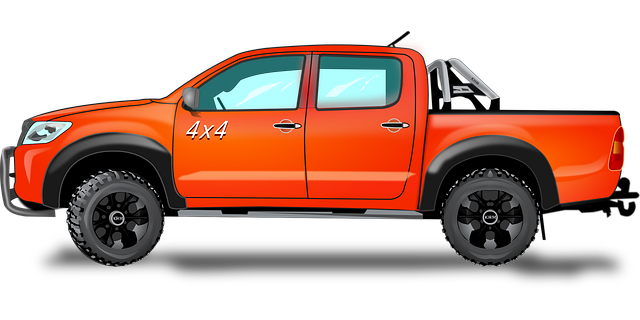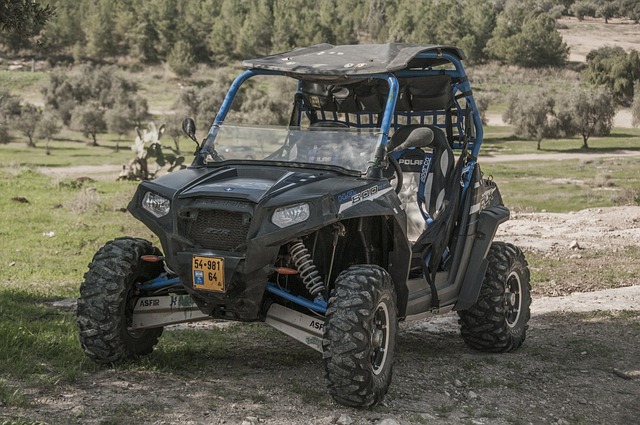McAllen's off-road communities rely on receiver hitches for versatile towing and hauling solutions. These hitches cater to different vehicle types and trailers, offering safety at various speeds. Choosing the right hitch class (I, II, III, IV) is crucial based on vehicle capacity, trailer type, and specific off-road needs. Installation tips include securing bolts with a torque wrench, regular inspection, and maintaining weight distribution. McAllen's off-road scene, known for thrilling trails and global enthusiasts, fosters an inclusive community for all skill levels.
Receiver hitches are versatile components that enhance vehicle functionality by enabling towing and carrying various loads. This article explores their benefits and offers a comprehensive guide to different types, selection, installation, and safety. We delve into popular applications, including McAllister off-road communities, showcasing how receiver hitches transform outdoor adventures. By the end, you’ll be equipped with knowledge to make informed decisions for your vehicle’s needs.
- Understanding Receiver Hitches: Their Function and Benefits
- Different Types of Receiver Hitches: A Comprehensive Overview
- Choosing the Right Receiver Hitch for Your Vehicle and Needs
- Installation and Safety Tips for Receiver Hitches
- Exploring Popular Applications: McAllister Off-Road Communities and Beyond
Understanding Receiver Hitches: Their Function and Benefits

Receiver hitches are a vital component in off-road adventures, especially for residents of McCallen’s thriving off-road communities. Their primary function is to facilitate the secure towing and hauling of various equipment, enhancing the versatility of your vehicle. By allowing you to attach trailers, bikes, or other accessories, receiver hitches open up a world of outdoor exploration possibilities.
One of the key benefits is their adaptability. Whether it’s for pulling a camping trailer on a weekend getaway or transporting heavy-duty tools for a construction project, receiver hitches provide the necessary attachment point. Their design ensures a sturdy connection, enabling safe and efficient towing at various speeds. This feature sets them apart from other hitch types, making them a popular choice for those who demand versatility and reliability in their off-road gear setup.
Different Types of Receiver Hitches: A Comprehensive Overview

There are various types of receiver hitches available in the market, each designed for specific towing needs. For those living in McAllen off-road communities, choosing the right hitch is essential for safe and efficient towing. The most common types include:
1. Class I Hitches: These are the lightest-duty hitches suitable for lighter vehicles and smaller trailers. They typically bolt onto the vehicle’s frame and offer a standard connection point for trailer balls.
2. Class II Hitches: A step up from Class I, these hitches support heavier trailers and provide a higher clearance between the trailer and the road. They are ideal for light-duty towing in McAllen off-road communities.
3. Class III (5th Wheel) Hitches: Designed for heavy-duty towing, 5th wheel hitches require a specific hitch receiver on the truck bed and a gooseneck ball on the trailer. This setup offers superior stability for hauling large trailers across diverse terrains in McAllen’s off-road areas.
4. Class IV (Gooseneck) Hitches: Similar to Class III but with a slightly different attachment point, Class IV hitches are also suitable for heavy-duty towing and are popular among off-road enthusiasts.
Choosing the Right Receiver Hitch for Your Vehicle and Needs

Choosing the right receiver hitch for your vehicle and needs is a crucial step in ensuring safe and efficient towing. In McAllen off road communities, where rugged terrain is not uncommon, selecting an appropriate hitch becomes even more critical. Consider factors like your vehicle’s make and model, the type of trailer or equipment you plan to tow, and your specific off-road requirements.
Different receiver hitches offer varying load capacities and attachment points, catering to diverse towing scenarios. Class I, II, and III hitches are common options, each designed for specific weight ranges and offering different ball mount positions for versatile towing needs. It’s essential to match the hitch class with your vehicle’s capability and intended use, whether it’s for light-duty towing around town or heavy-duty off-road adventures.
Installation and Safety Tips for Receiver Hitches

When installing a receiver hitch in your vehicle, follow these essential safety tips for a secure and efficient setup. Begin by ensuring your vehicle is parked on a level surface to avoid any uneven weight distribution. Next, choose the correct hitch class that aligns with your vehicle’s specifications and towing capacity, as recommended by the manufacturer. Properly tighten all bolts and hardware using a torque wrench to prevent loosening during tow.
Regularly inspect the hitch for signs of wear or damage, especially after frequent use in the rough terrain often explored by mcallen off road communities. Keep weight distribution balanced by securing your trailer or towing load securely with straps or chains. Remember to consult your vehicle’s owner manual for specific guidelines related to receiver hitches and always tow within safe limits to ensure a smooth and safe driving experience.
Exploring Popular Applications: McAllister Off-Road Communities and Beyond

McAllister off-road communities have become a hub for enthusiasts seeking thrilling adventures and robust vehicle modifications. These communities often organize trail rides, races, and meetups that attract participants from across the region, fostering a vibrant exchange of ideas and experiences related to off-roading. Beyond these local gatherings, McAllister’s reach extends globally through online forums and social media groups, where members share tips, compare gear, and plan collective excursions.
The popularity of McAllister off-road communities can be attributed to their diverse landscapes—from rugged mountainsides to dense forests—that offer a range of challenging trails for all skill levels. This variety not only caters to seasoned off-roaders but also encourages newcomers to explore the thrilling world of off-roading, making these communities inclusive and welcoming.
Receiver hitches have proven to be versatile and functional additions for various vehicles, offering numerous benefits. From facilitating the transport of heavy loads to enhancing off-road capabilities, especially in McAllister off-road communities, the right receiver hitch can significantly enhance your driving experience. By understanding the different types available and choosing the suitable match for your needs, you can ensure a safe and efficient journey. With proper installation and adherence to safety tips, receiver hitches allow you to explore new terrain and unlock the full potential of your vehicle.



